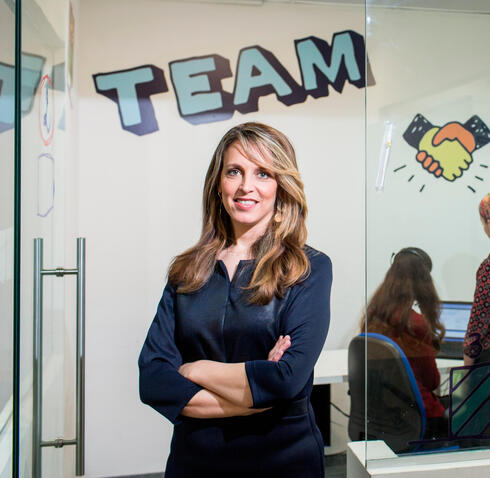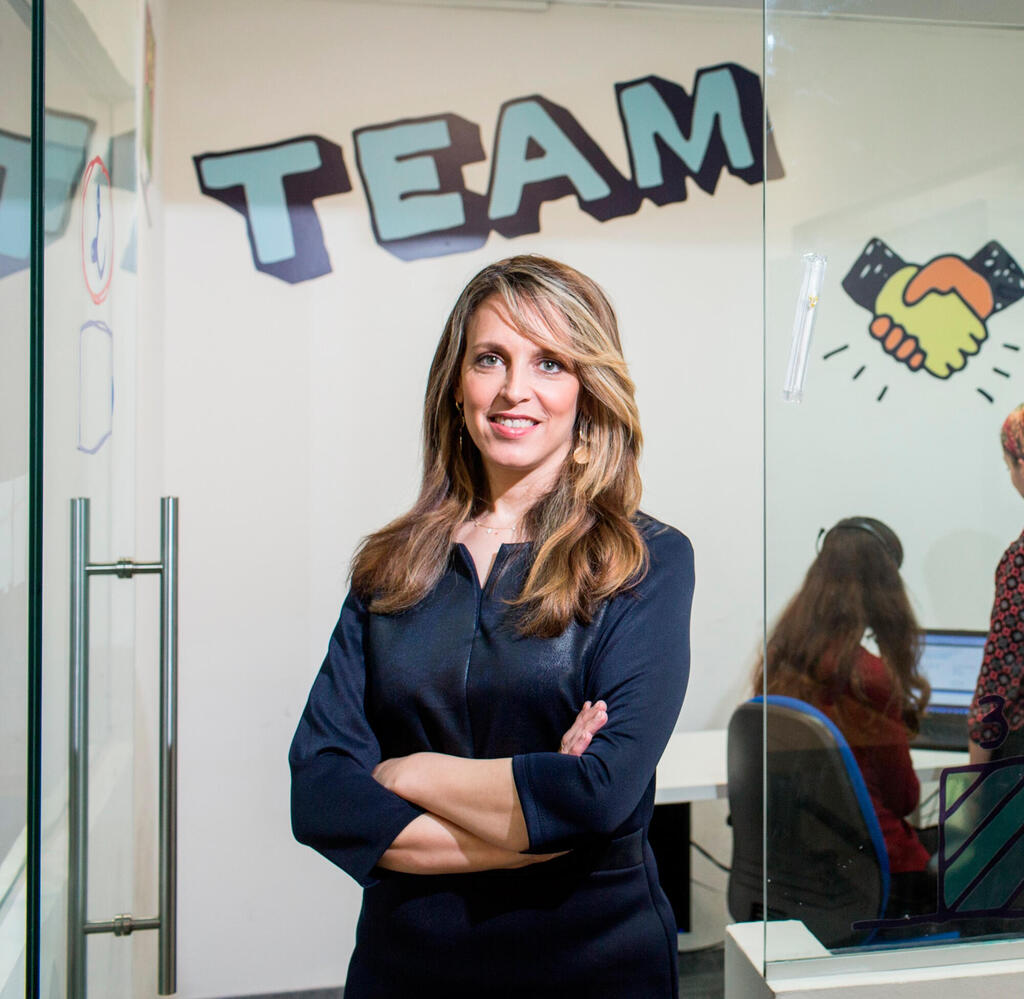
"My first job interview was two weeks after giving birth; a month later I started working"
Racheli Ganot, CEO and founder of the Ready Group, says that flexibility in the high-tech industry makes it very suitable for women
CEO of Ready Group Racheli Ganot’s first job interview took place two weeks after giving birth to her daughter. "I started my degree during my pregnancy with my eldest son and finished it during my second pregnancy with my daughter. My two older children are now computer science graduates, and according to them, it was easy for them because it was their second time studying for the degree," she says.
"I gave birth right after finishing my studies. It was in 2000 - the peak of the high-tech bubble and employee recruitment. I constantly received job offers and I really wanted to integrate into the workforce. I was two weeks postpartum, and it was one of the first times that I left the house. I remember feeling so nervous it was hard for me to cross the street. The interview went as you might expect. I took two more weeks to recover, during which I scheduled interviews in different fields. After a month, I had five job offers and chose Mindspeed, which was a great experience. When they approached me, I told them that I already had offers, so they asked about the conditions that others had offered me, and the process with them was very efficient and positive. It was also the closest to my place of residence at the time, which was important to me as I was a mother of two little ones, and working from home wasn't an option then. In retrospect, it was a very successful choice. I met people there who became good friends and from a business standpoint, they became my company's first customers."
Ganot was first exposed to high-tech at the age of 16 when she took a programming course. She went on to complete her degree in computer science at Bar-Ilan University. After holding several positions in the industry, she founded the company Raychip, which is now called Ready Group, an R&D hardware and software company. The company is made up of 170 employees, 80% of whom are women. Ganot is a mother of four and lives in Givat Shmuel.
Regarding her choice to work in high-tech as a young mother, she says, "I never demanded concessions, not when I was in university and not in the workplace. I always knew how to balance. I am also active in the organization New Faces, where I lead science and technology initiatives. For ten years I have been organizing programs to encourage girls to study science and technology in high school, and I always say that in high-tech, there is a lot of flexibility. You're not judged by the number of hours but by the results, and the work is very flexible. You can work at any time, so I encourage women to enter the industry."
In 2018, Ganot was chosen to light a torch at Israel's 70th Independence Day ceremony for her efforts to integrate ultra-Orthodox women in high-tech. She has founded several startups, chairs and sits on various boards, including IATI (Israel Advanced Technology Industries), the umbrella organization for the high-tech and biotech industries in Israel, and the board of trustees of Hadassah College. She chairs the Science and Technology Forum of the organization New Faces, which focuses on encouraging girls to take STEM courses in high schools. Her humbleness, passion, and genuine love for what she does is evident. It is probably the reason why she seeks the same passion when hiring as well. When interviewing employees, she likes to ask open-ended questions and pays attention to whether people discuss their previous experience with energy or indifference and boredom.
"It's amazing how many people in senior positions are interviewed for roles that their heart is not in. They almost doze off when they talk about what they want to do, and then suddenly they are asked about hobbies or their dreams or a trip abroad, and their body language changes. I understand in cases like these that their heart simply isn't there, and it's a shame for them and a shame for the organization. At all levels of seniority, it’s important to see that a person possesses energy and passion. It's important for me to ask questions that give an indication of a person's achievements, their productivity, whether they set goals for themselves, measure themselves, what they measure themselves against, and what they strive for," she says.
She says that from a very young age she was encouraged to learn practical skills. “My mother is a musician, so I learned music, accordion, and even sewing beyond the regular curriculum. When I was 16, my parents saw an advertisement for a programming course. It was in 1993, a time when not everyone was studying computers like today. My parents told me that it seemed like the future was heading in that direction, and it was worth a try. I was the youngest in the course, which I did during high school, and it opened up this world to me that was very interesting and I decided to make it my focus. After getting married at the age of 19, I started looking for work in the field and realized that the course wasn't enough to qualify for the jobs I aimed for. I was accepted as an intern at the place where I took the course, and at the same time, I started studying for psychometric exams because I knew I needed to complete a degree. After that, I integrated into the industry."
After Ganot’s first job at Mindspeed, she went on to work at several other companies. She says that even when those companies closed, it was helpful for her career, since she had former colleagues spread out across the industry who advocated for her. “I had a lot of ambassadors in other places, so when I started my company it was very helpful.”
Why did you decide to establish your own company?
"When I moved to Infineon, I noticed that filling my position was very difficult. Later, when I became a team leader, I encountered the same problem myself. It was challenging to find suitable candidates for the positions. That's when I came up with the idea of starting a company that would bring together ultra-Orthodox women in my areas of expertise, specifically those skilled in hardware and software. I believed that with proper training, anyone could excel in these roles, and I saw a potential opportunity.
"Being a team leader in the high-tech industry is not a position you leave abruptly. So, while still working as a team leader, I started working on my idea, evaluating candidates and assessing their knowledge in the relevant areas. Meanwhile, Infineon closed down. Fortunately, we received favorable terms with ample notice and payment. This event served as a catalyst for me to realize that it was time to seriously pursue my project.
"In 2007, the year I founded the company, then named Rachip, there was a high demand for skilled workers in my field. I was fully focused on establishing the company and searching for initial projects. I worked tirelessly, with significant expenses and no income. I vividly remember a high-tech company approaching me for an interview regarding transferring a project to my company. During the meeting, a human resources manager tried to make me an offer as a hiring manager for them, assuming it would be too good to refuse. However, I shocked them by declining the offer outright. It was a defining moment for me, where I truly understood and embraced my decision to become independent and start my own company, regardless of the circumstances."














